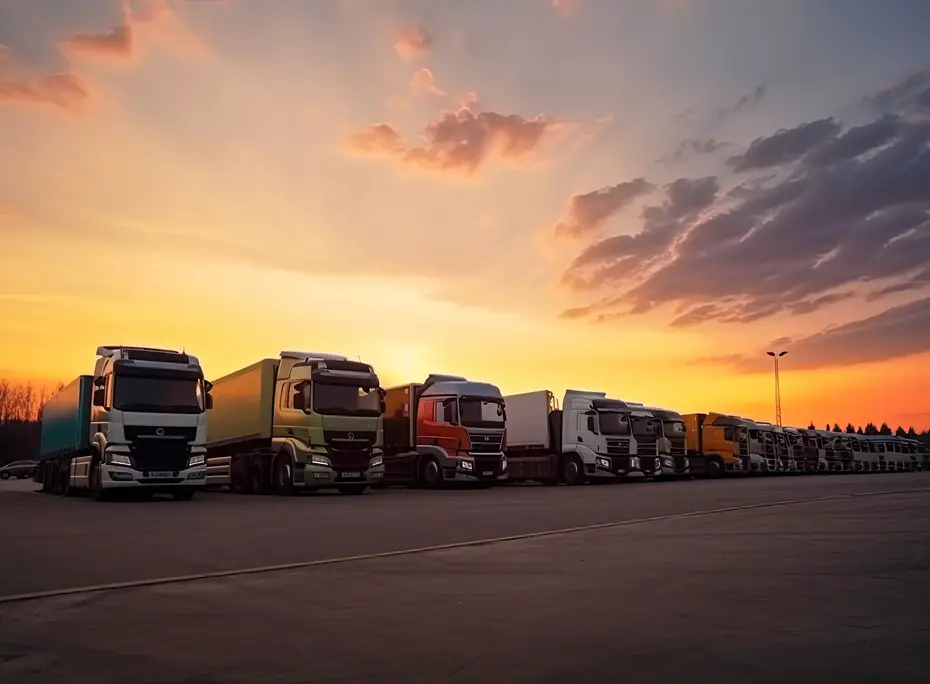In today’s fast-paced world, coordinating vehicles efficiently is more vital than ever. Thanks to cutting-edge technologies like software for fleet management, businesses are stepping into an era of unprecedented coordination and seamless operations. But what does the future hold for vehicle coordination, and how can businesses leverage these advancements? Let’s dive deep into this captivating journey of vehicular transformation.
1. Automation and Artificial Intelligence; Revolutionizing Fleet Management
The influence of artificial intelligence (AI) in fleet management can’t be overstated. Today, AI-driven systems analyze vast amounts of data in real time, facilitating timely decisions and predictions. Imagine a system that forecasts weather patterns and suggests alternate routes to avoid delays or a system that predicts vehicle maintenance needs before they become critical. Such advancements are not mere science fiction; they are the evolving reality of fleet management. And as AI continues to evolve, its role in predicting and mitigating fleet challenges will only become more pronounced.
2. Eco-Friendly Fleets; The Rise of Green Vehicles
There’s an unmistakable shift towards sustainability in every industry, and fleet management is no exception. Electric vehicles (EVs) and hybrids are gradually dominating fleets, ushering in an era of reduced carbon footprints. But it’s not just about the environment. Electric fleets are cost-effective in the long run, with lower maintenance costs and growing infrastructure support. As cities around the world impose stricter emissions regulations, businesses will find the transition to green fleets not just beneficial but essential.
3. Real-time Coordination; The Power of Instant Communication
The ability to communicate in real-time with an entire fleet has transformed vehicle coordination. Through advanced software solutions, fleet managers can now relay instant messages, adjust schedules on the fly, and respond to unforeseen challenges in a heartbeat. Think of it as a symphony where each vehicle plays a specific note, and the fleet manager, like a conductor, ensures the music flows flawlessly. This level of real-time coordination enhances efficiency and ensures businesses can meet their commitments without hiccups.
4. Safety Enhancements; Protecting Assets and People
The importance of safety in fleet management can’t be emphasized enough. With the integration of technologies like telematics and advanced driver-assistance systems (ADAS), the future looks promising for enhancing fleet safety. These systems monitor vehicle performance, driver behavior, and external conditions, providing insights that can prevent accidents and reduce risks. It’s a win-win situation: businesses safeguard their valuable assets and, more importantly, their people, ensuring smooth operations and fostering trust among their clientele.
5. Data-Driven Decisions; Harnessing Insights for Strategic Planning
In the future of vehicle coordination, decisions won’t be based merely on instincts or past experiences. Instead, they will be deeply rooted in data-driven insights. That’s why trusted fleet management software is a necessity. As professionals at Geotab say, “ Fleet management software provides a user-friendly way to monitor fleet performance, with dashboards showing data and trends on vehicles and driving .” It will offer comprehensive analytics, from fuel consumption patterns to driver performance metrics. By understanding these patterns, businesses can optimize routes, schedule timely maintenance, and even anticipate market demands. Imagine a world where businesses can foresee challenges and pivot their strategies proactively. That’s the power of data-driven decision-making in fleet management.
The future of vehicle coordination is rife with possibilities. As businesses integrate advanced technologies and adopt sustainable practices, they stand to gain in efficiency, safety, and cost-effectiveness. Embracing these changes won’t just be about staying ahead of the curve; it will be about redefining the curve altogether. Businesses that recognize these trends and adapt swiftly will not only benefit in terms of operational excellence but will also carve a niche for themselves in an ever-evolving market landscape. The future beckons and it’s a future of seamless, efficient, and sustainable vehicle coordination.

